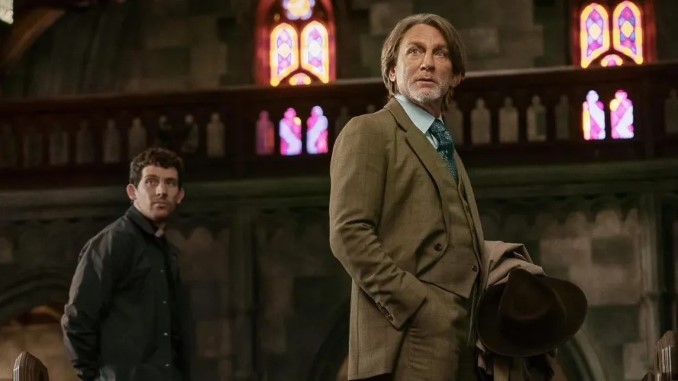Rian Johnson Takes His Murder-Mystery Series to Exhausting Ends in Wake Up Dead Man: A Knives Out Mystery

More than anything, Rian Johnson loves exploring the textures of whatever dorky genre milieu he can get his hands on. Whether it’s teen detective mysteries (Brick), con-man globetrotting adventures (The Brothers Bloom), or original and franchise sci-fi alike (Looper and Star Wars: The Last Jedi), Johnson is always eager to dive into familiar pulpy palettes and refashion them into his own distinct character. It’s what makes his Knives Out series feel so well-suited to his sensibilities: He can spin episodic capers for his southern-fried, urbane, paperback mystery-novel detective Benoit Blanc (Daniel Craig), each set in whatever context seems fun at the time — an autumnal jaunt to a New England mansion, a summer vacation in sunny Greece, and now a gothic turn as he investigates a murder in a small-town church.
The trajectory of the three Knives Out films mirrors the tonal shifts that once gave great mystery novelists a splash of exotic flavor to underline what is, ideally, a cunning unraveling of the central puzzle. That said, Johnson — endearing as his voice often is — has never been Agatha Christie. Wake Up Dead Man falls into the same traps that made Knives Out more successful as a comedy than a mystery, and Glass Onion an overindulgent sequel. This third entry eases up (slightly) on name-dropping the endless cultural flashpoints of our divisive political climate, leaning instead toward a more meaningful mystery for Blanc. But it also suffers from so much narrative baggage that it fails both as the darker, personal story it wants to be and as the lighter comic escapade these films usually promise.
-

-

-

-

-

-

-

-

-

-

-

-

-

-

-

-

-

-

-

-

-

-

-

-

-

-

-

-

-

-

-

-

-

-

-

-

-

-

-

-








































